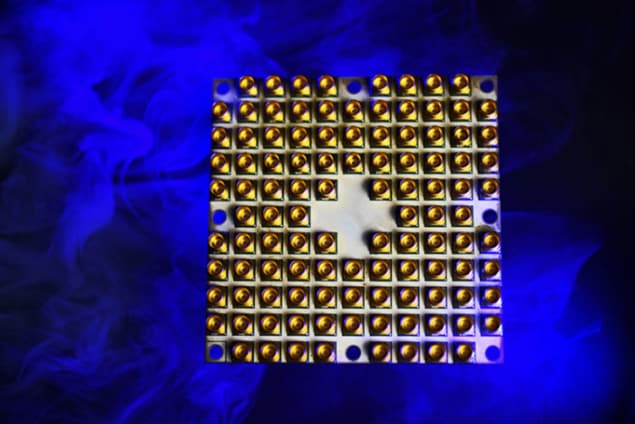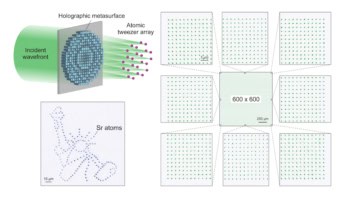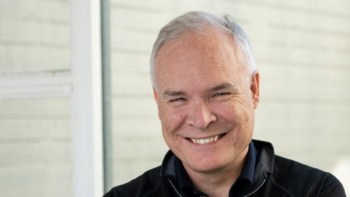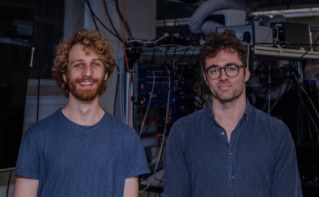
Intel has announced the design and fabrication of a 49-qubit superconducting quantum-processor chip at the Consumer Electronics Show in Las Vegas. Speaking at the conference, Intel chief executive Brian Krzanich introduced “Tangle Lake”; a quantum-processor chip that operates at extremely low temperatures. The device takes its name from the Tangle Lakes, a frigid chain of lakes in Alaska, and is a nod to quantum entanglement.
Tangle Lake is designed to store and process quantum information in qubits that are superconducting circuits. Krzanich said that the chip is an important step towards developing quantum computers that could quickly solve mathematical problems involved in some of society’s most pressing issues – from drug development to climate forecasting.
Large-scale integration
He also announced progress in Intel’s research on spin qubits, which have qubits based on the spin states of single electrons. While superconducting chips tend to be relatively large, the spin-qubits could be miniaturized using well-established silicon-chip fabrication processes. This means that it may be possible to manufacture quantum processors containing large numbers of spin qubits. This large-scale integration would be could be more difficult for superconducting qubits.
However, there is some scepticism in the physics community regarding Intel’s silence about the performance and quality specifications of Tangle Lake and their spin qubit chips. Intel is also facing fierce competition. IBM has itself announced quantum computers with 20 and 50 superconducting qubits in recent months, and companies including Google and Rigetti are also securing footholds in the nascent market.
Commercial quest
“In the quest to deliver a commercially viable quantum computing system, it’s anyone’s game,” confesses Mike Mayberry, managing director at Intel Labs. “We expect it will be five to seven years before the industry gets to tackling engineering-scale problems, and it will likely require one million or more qubits to achieve commercial relevance.”



